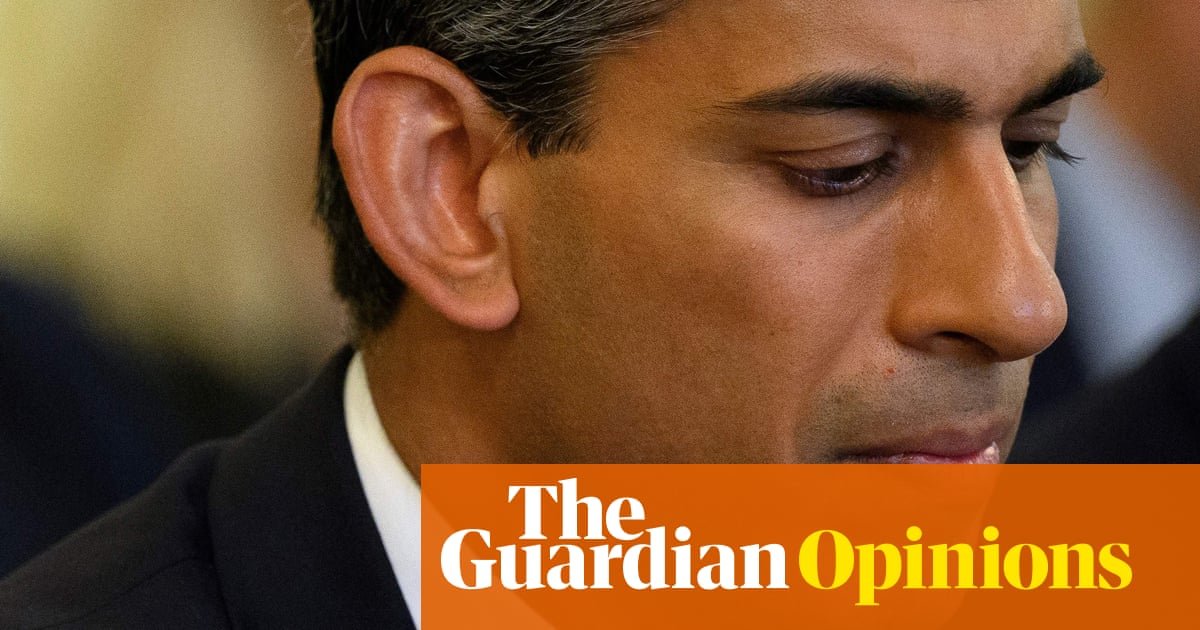Sunak needs coherent plan with serious firepower for great economic escape - 4 minutes read

Britain’s economy is at a turning point. Growth is slowing, with the rising chance of recession, inflation is at the highest level for 40 years, and expected to hit 11% this autumn as the country suffers an earlier and more painful economic firestorm than most other nations.
That it was considered big news for the governor of the Bank of England to spell out these uncomfortable home truths this week was perhaps surprising given the regular drip-drip of economic pain that has sent confidence among consumers to its lowest depths since the 1970s.
The important question though is how we react. And therein lies a problem. For the government, it isn’t so much where Britain turns next but what can be done to save Boris Johnson’s floundering leadership.
As much of the UK struggles with the soaring cost of living, rival Conservative factions push their own agenda. A growing laundry list of ideas has been floated, often with conflicting demands: tax cuts are to be prioritised, yet funds for more military spending are demanded; the public sector is to be slashed, despite promises of levelling-up, as well as more teachers, nurses and police. Last autumn, Johnson wanted a high-wage economy, now he warns against bigger pay rises.
All this suggests the lack of a coherent economic plan, which is bad enough for a government in normal times but in the middle of the biggest hit to living standards since the 1950s is a dangerous abdication of responsibility.
This month, Johnson and the chancellor, Rishi Sunak, are expected to relaunch their economic policy in a joint speech. After announcing £37bn of financial support for households this year, the focus is likely to be the long-term plan for tackling the cost of living squeeze.
High on the list should be plans to insulate homes, invest in reliable green energy, and get Britain’s economy moving again through productivity gains, the latter of which is vital for boosting living standards over the long term and could help the country escape persistently higher rates of inflation.
Maintaining Britain’s productivity growth from before the 2008 financial crash would have generated an extra £5,000 a worker each year, according to the National Institute of Economic Social Research. Meanwhile, London has pulled further ahead from the rest of the country, indicating deep structural problems, with productivity 50% above the national average, compared with 40% in 2002, according to the Resolution Foundation.
Well-targeted investment is key to escaping the inflation trap and boosting productivity. The good news is that Sunak recognises this, using his Mais lecture at the Bayes Business School in London to spell out his thinking for investment in “capital, people and ideas”, three things economists agree would help. Where this investment comes from and how exactly it is targeted remain unclear.
Sunak’s preference is to use the power of the private sector – offering tax breaks to companies to invest in productivity-boosting projects. He is expected to announce plans to build on his £29bn “super-deduction” scheme launched last year, which gives firms a 130% relief on their tax bills for qualifying investments until April 2023.
The Treasury completed a consultation last week that looked at ways to replace the scheme, including the option of full expensing for investments. This would allow companies to deduct the entire cost of qualifying spending from their tax bill and would cost the exchequer £11bn in lost revenue.
Sunak is believed to prefer waiting until the autumn budget to set out his plan, but is likely to come under pressure to announce something in the joint speech with Johnson. Business leaders know this, and are lobbying hard.
Allowing such a tax break would need to be policed carefully to safeguard against abuses of the system and the likelihood of the government supporting questionable corporate priorities. However, after a decade failing to increase business investment changes in thinking are required.
Unlike his predecessors, Sunak believes simply slashing the headline rate of corporation tax to encourage investment does not work. Despite corporation tax being cut from 28% in 2010 to 19% today, business investment has barely budged and the exchequer has been deprived of billions in revenue.
Holding firm to this position could be challenging, as parts of the Tory party push for an attention-grabbing cut in corporation tax in an attempt to restore favour with business leaders, while preventing the overall tax burden rising to the highest levels since Clement Attlee was prime minister.
Source: The Guardian
Powered by NewsAPI.org